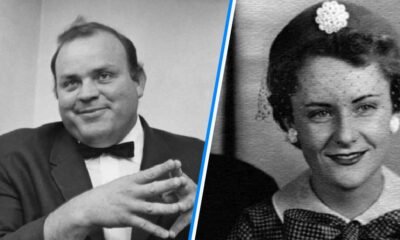Technolgy
Diesel Generator Alternators: The Power Behind the Power

British domesticity, company offices, and construction sites constructing all rely on the stability of power generated by diesel generators as the optimum substitute for continuous and standby power supply. While everyone is as familiar as ever with the engine being a key component, it is the alternator that supplies them with electricity. Alarming, though, is that if any person needs a generator, putting up one that is fixed or for replacement, he or she should know of a diesel generator alternator — i.e., why and how it works.
What Is a Diesel Generator Alternator?
The diesel engine generator alternator is the component of the generator that performs the task of converting the mechanical energy generated by the diesel engine to electrical energy. It doesn’t generate electricity independently — instead, it converts electromagnetic induction to convert the rotary pressure (torque) of the engine to electricity.
The alternator functions in conjunction with the engine within a permanent system that supplies electricity during power outage, off-grid areas, or specialized application that calls for isolated supply of electricity.
Key components of a diesel generator alternator
A standard alternator possesses the following:
- Rotor (or field) – The engine driver part that supplies a magnetic field.
- Stator – A stationary part with copper windings. When it is turned, the rotor generates an electric current in the stator.
- Automatic Voltage Regulator (AVR) – Gives a constant voltage output regardless of load change.
- Cooling System – Avoids overheating when used for a long time. This is air-cooled or liquid-cooled based on the size of the generator.
These parts are used to produce alternating current (AC) electricity, which can power everything from home devices to industrial machinery.
Why Diesel?
Diesel engines are utilized in generators to a significant degree for an endless array of good reasons:
- Fuel efficiency – Diesel engines use less fuel than their petrol counterparts over an extended period of time.
- Longevity – Diesel alternators and motors are reported to be long-lasting.
- Torque – Employed to drive heavy alternators, diesel generators are therefore a suitable choice for commercial use.
- Safety – Diesel is less combustible than petrol and therefore a suitable choice for the general consumer.
Alternators utilized in Diesel Generators
- Brushless Alternators
They are also found in most new diesel generators. They are:
- Low maintenance as they lack brushes that tend to wear off
- Long term, therefore ideal for industrial or heavy duty use
- More efficient, cleaner, and more stable power
- Brushed Alternators
Less popular today but replacement alternators such as:
- Use carbon brushes to brush against electric current
- Needs more maintenance work
- Can be fitted in lower or cheaper models
Single-Phase and Three-Phase Alternators
- Single-phase alternators for diesel generators are better suited for domestic and small commercial use, typically up to 10kW.
- Three-phase alternators are industrial and commercial usage, providing increased power and loads in a more efficient manner.
If you’re in the UK construction, agriculture, or manufacturing industry, a three-phase diesel generator would generally be appropriate.
Typical UK Applications
Alternators on diesel generators have diversified uses across many industries, including:
- Construction – Generators for mobile offices, lighting, and power tools on construction sites
- Events – Off-grid power supply to outdoor events, weddings, and festivals
- Emergency stand-by – To charge homes, hospitals, and data centers when power fails
- Off-grid locations – For rural homes, farms, and telecommunication
Maintenance Hints
To keep your diesel generator alternator like new:
- Check often for wear and tear, rust, or damage
- Check voltage output to maintain stability
- Monitor cooling systems to avoid overheating
- Clean contact and terminal as and when required
- Professional servicing is necessary, especially on large capacity units
Regular maintenance extends the life of your alternator and prevents power loss.
Alternator Selection
While in the UK, while replacing or purchasing a diesel generator alternator, keep in mind:
- Power rating (kVA/kW) – Should be equal to your load requirement
- Voltage and frequency – UK 230V/400V and 50Hz
- Mounting and size – Should fit your diesel engine
- UKCA and BS standard conformity – Legal and safety requirement guarantees
Be sure to purchase from established suppliers in the UK and arrange to have problematic installs done by a technician or an electrician.
A diesel generator alternator is the core of any generation set, toiling quietly behind the scenes to change diesel power to productive electricity. Whether you operate in commerce, have an agribusiness, or are prepping for outages, knowledge of how and maintenance of keeping this machine healthy ensures your generator will be chugging along for you in years to come.
For more Information Visit Loopermagazine
-

 Celebrity1 year ago
Celebrity1 year agoWho Is Jordan Broad?: The Untold Story of Ashley Broad Husband
-

 Celebrity1 year ago
Celebrity1 year agoWho Is Mary Ryan Ravenel?: Inside The Life Of Thomas Ravenel’s Ex-Wife
-

 Celebrity1 year ago
Celebrity1 year agoWho Is Noelle Inguagiato?: The Untold Story Of Jesse Watters Ex-Wife
-

 Celebrity1 year ago
Celebrity1 year agoWho Is Dolphia Parker?: Everything About Dan Blocker’s Wife






